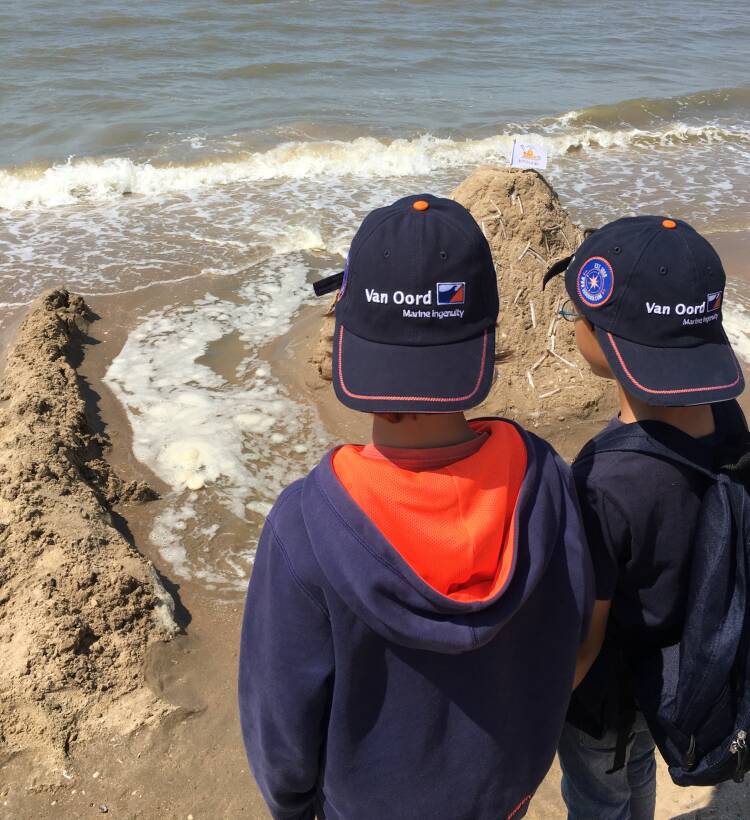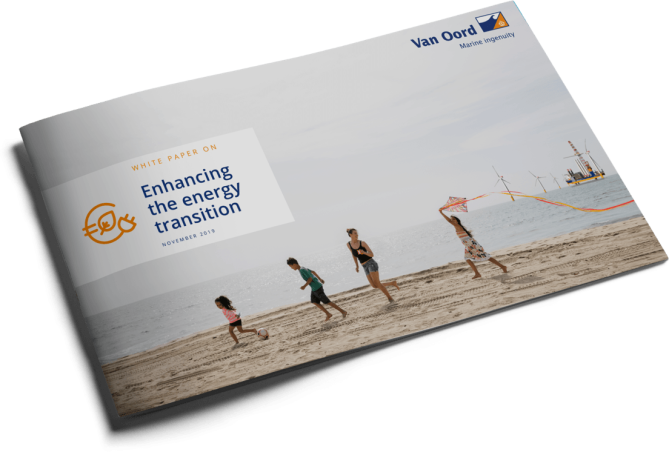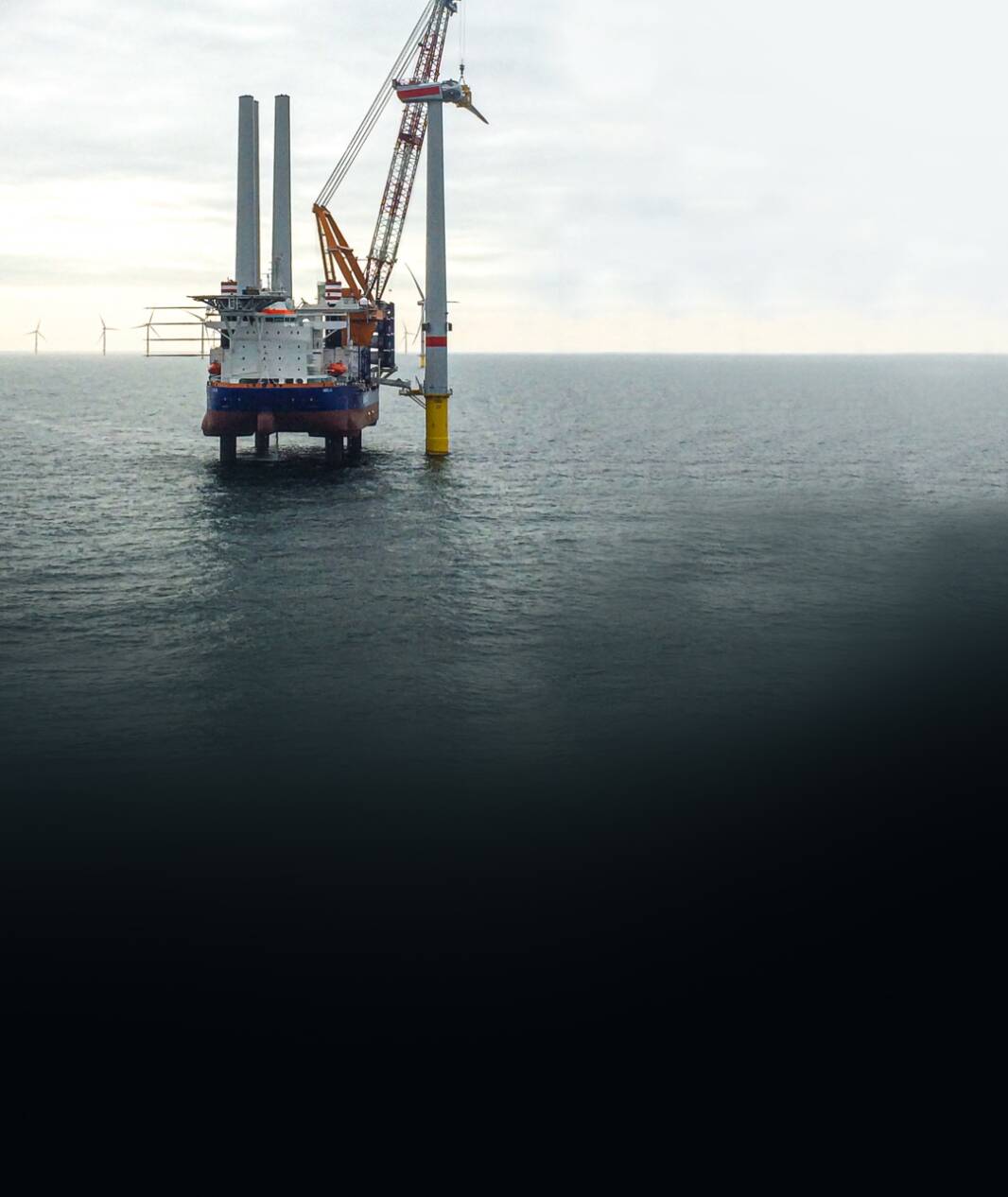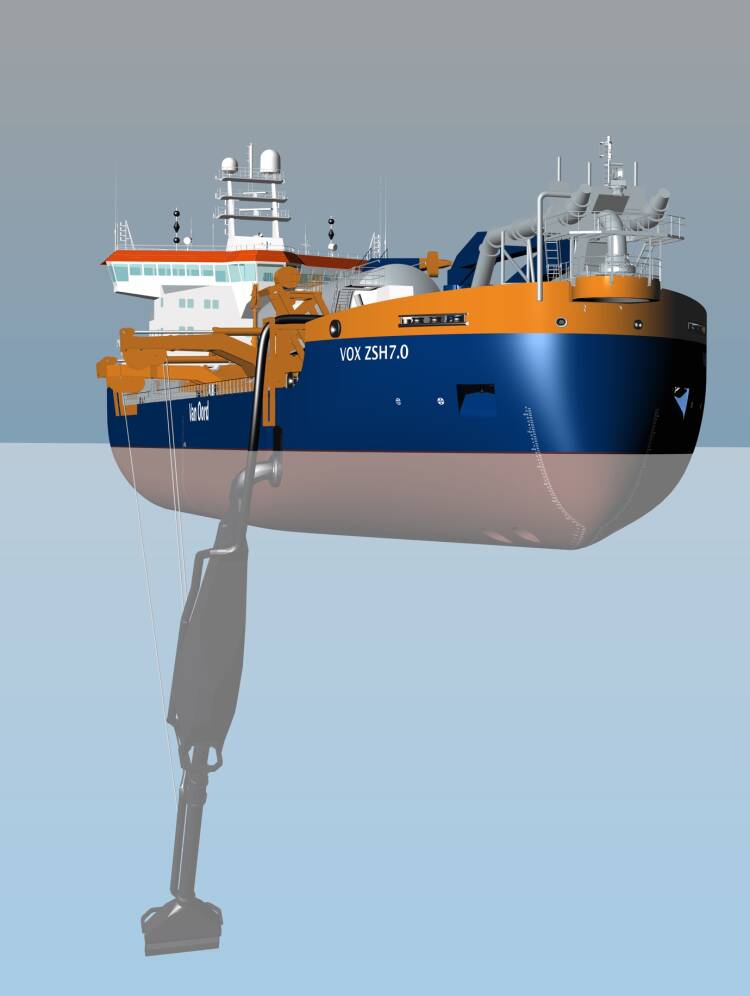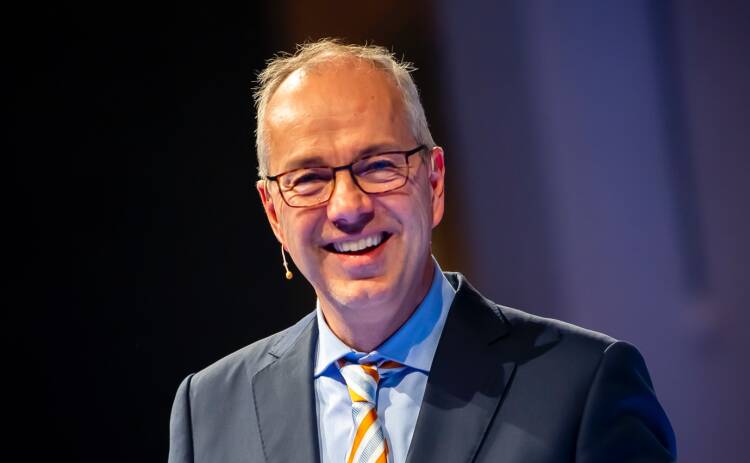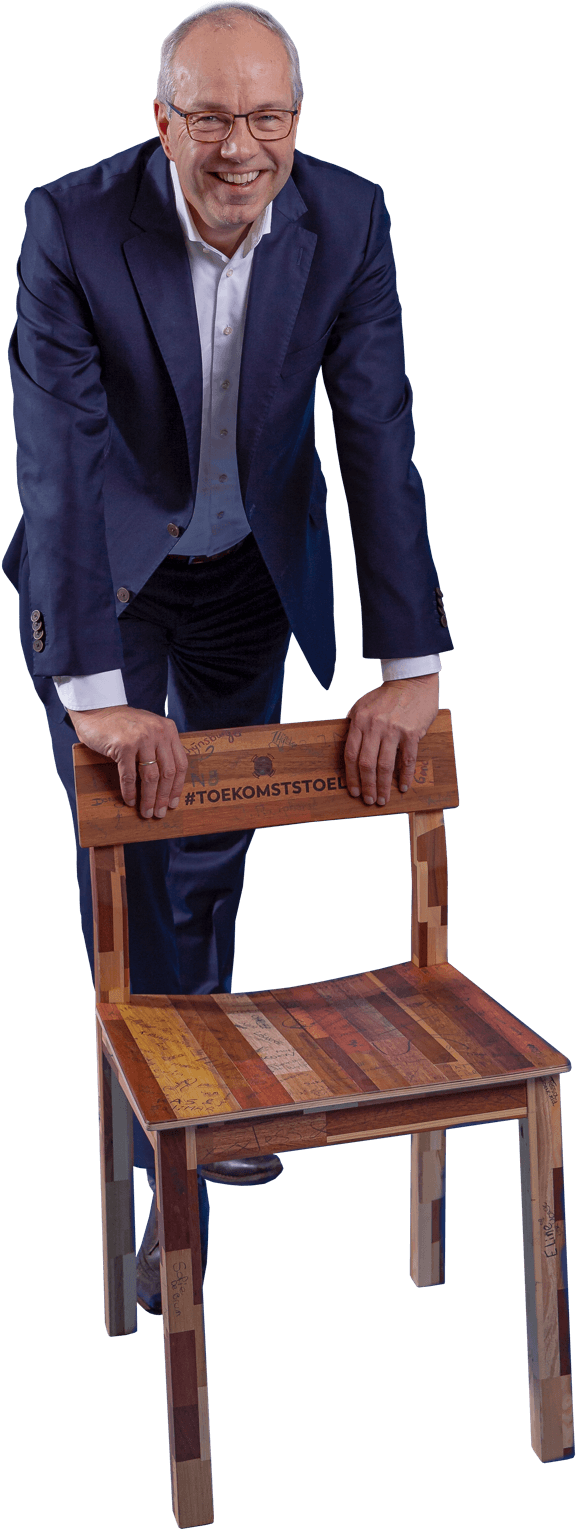
Interview
5
questions for
Pieter
van
Oord
Van Oord’s white paper makes a bold statement about accelerating the energy transition. Why does it want to help decarbonise the world’s energy supply? Our five questions for CEO Pieter van Oord delve into the company’s sustainable mindset.
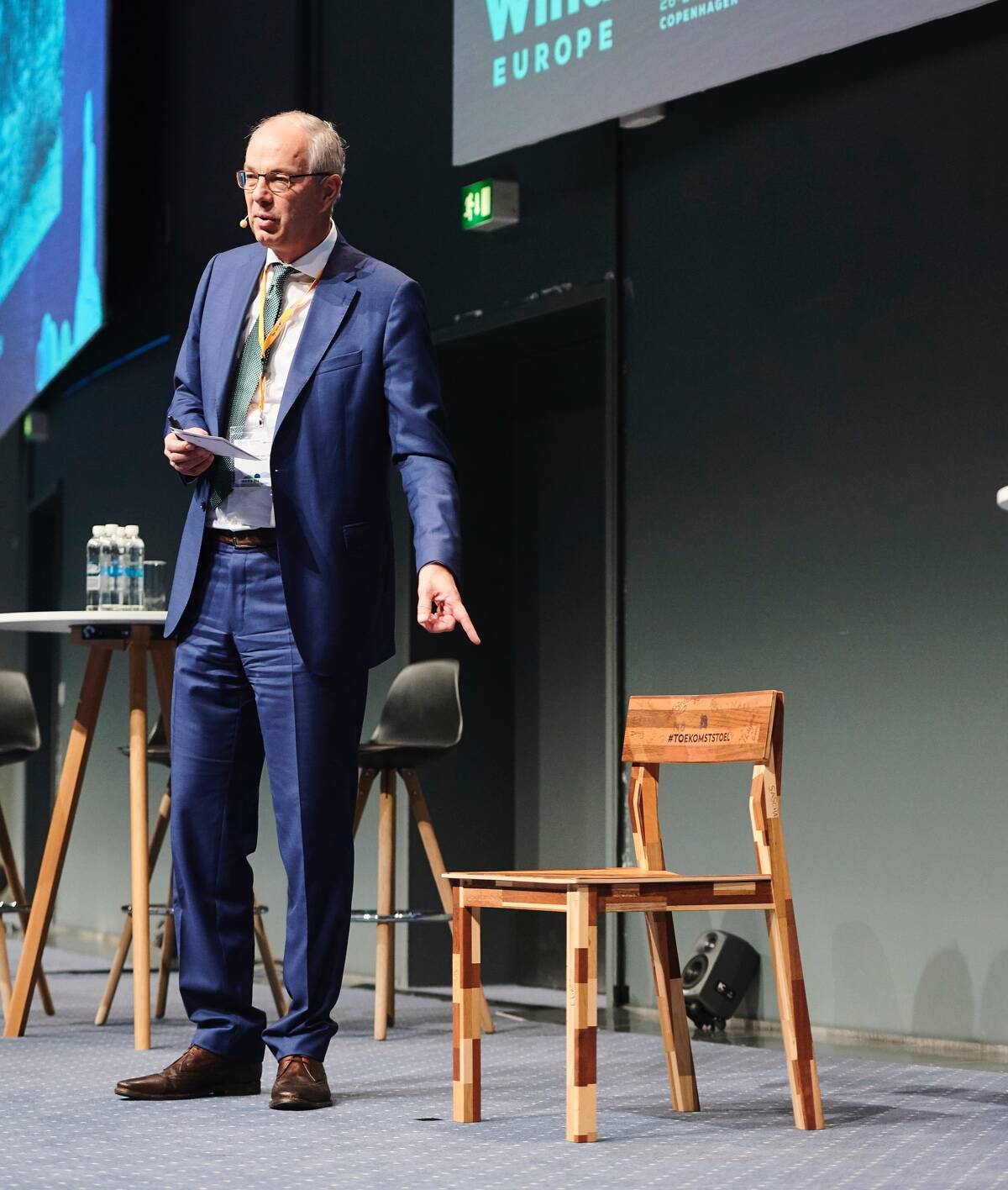
What motivates you to contribute to a sustainable future?
Last year, as part of our 150th anniversary celebrations, we asked our employees’ children to come up with ideas for what we should do in the next 150 years. As a reminder, they gave me a chair decorated with all their names and ideas. One of the ideas is to create a new energy system based on renewable sources. These children are the future! They will have to live in the world that we leave behind for them. The chair is my daily reminder of what we need to do. How?
In our white paper, we pledge to contribute actively to accelerating the energy transition. We are going to accomplish this by facilitating among others the large scale roll-out of offshore wind energy. That means investing in vessels, investing in people and investing in the value chain. In a way, we are developing a new economy.
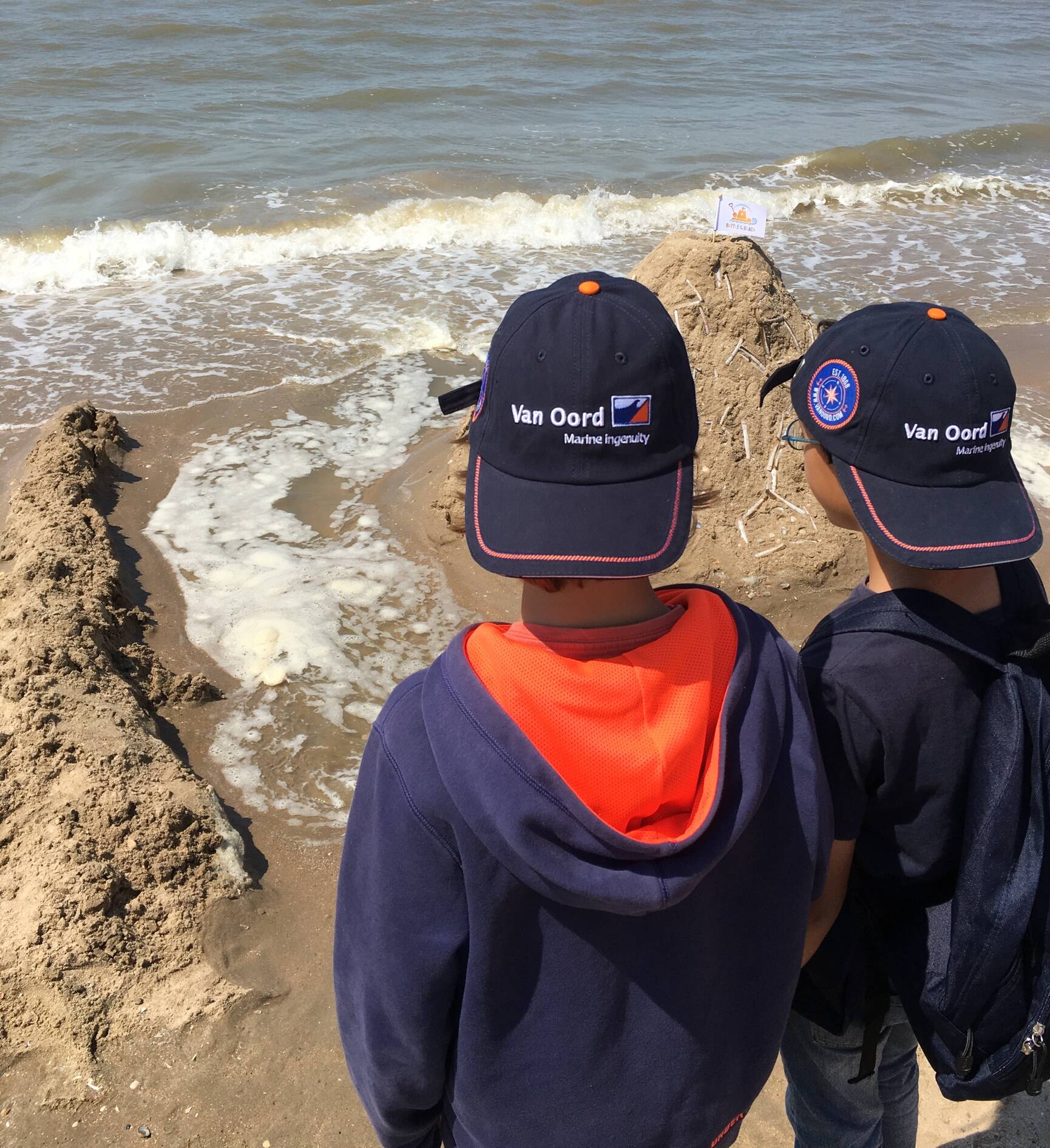
The white paper notes that oil and gas remain a relevant market for Van Oord. How does that fit in with the company’s sustainability ambitions?
The discussion we are having about shifting the energy mix to renewable sources is of course relevant for the Western world, but many countries cannot even afford to have this discussion. There, oil and especially gas are substitutes for coal and other more polluting fuels. The knowledge that Van Oord has acquired through its long involvement in offshore is critical for the transition to a sustainable energy supply. Gas, in particular, will play a key role in the transition to other energy sources in the next decade.
The world will not become sustainable overnight. I believe it will take a generation to shift to a renewable energy system. During this period, Van Oord intends to lead the way in creating a better world for future generations. We are prominent in the creation of a low carbon society with the expertise that we have acquired in developing and building offshore wind farms. Van Oord has been investing in people, equipment and knowledge for many years with a view to rolling out offshore wind farms on a massive scale.
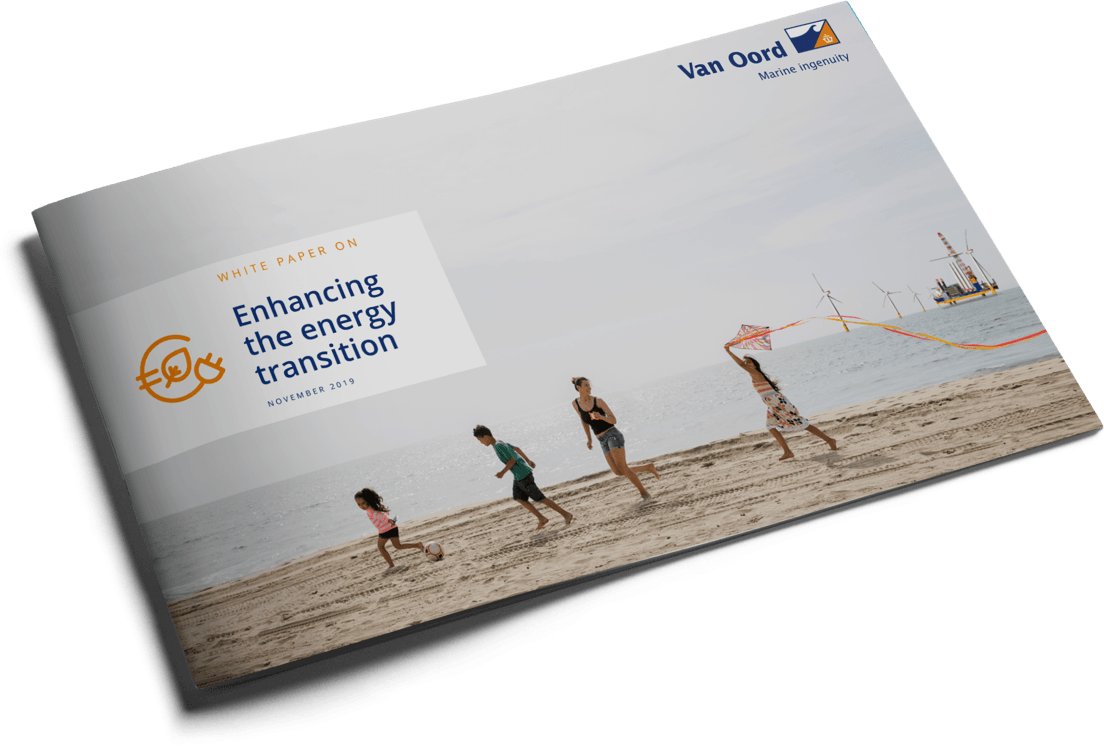
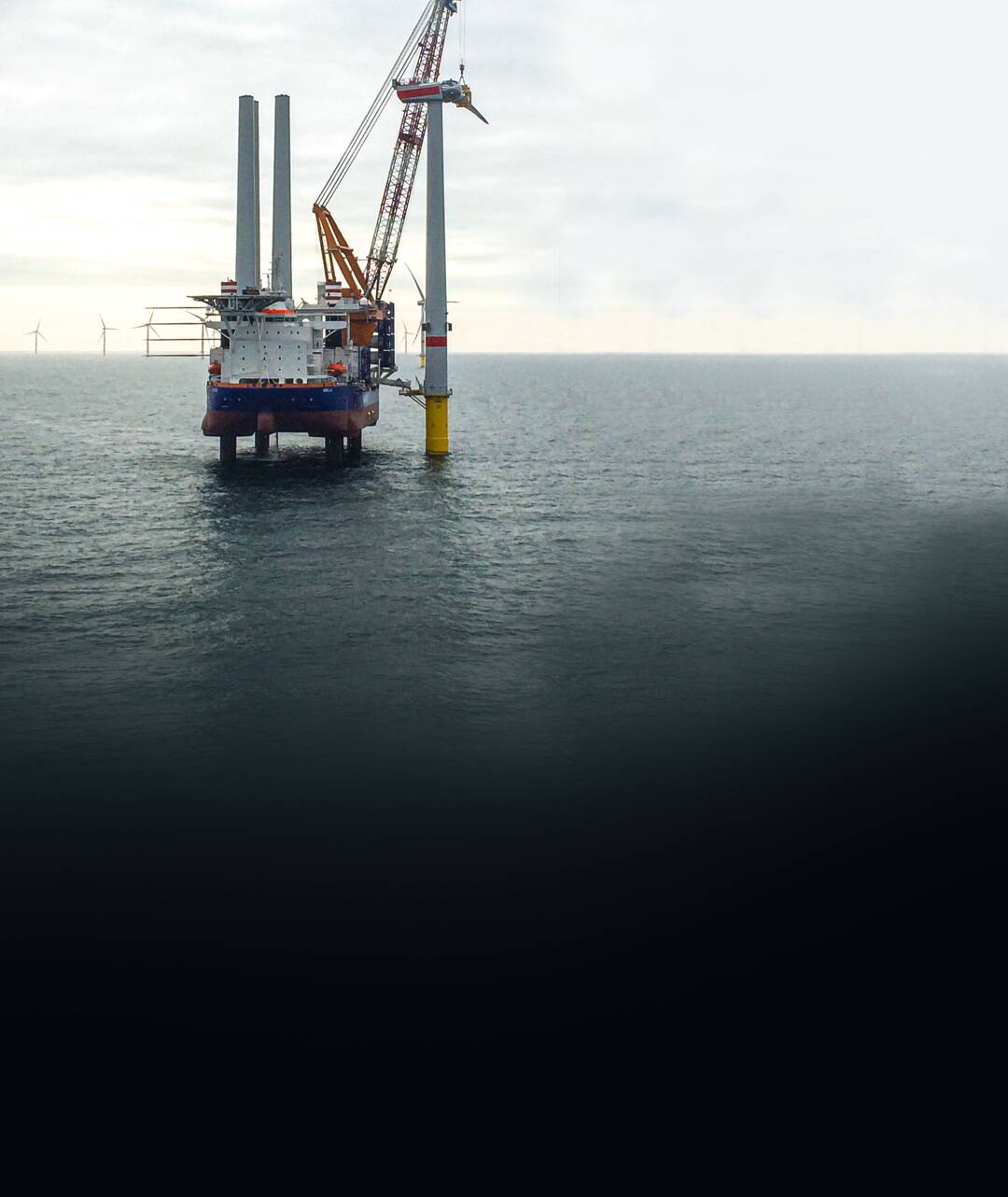
Which sustainable project or accomplishment are you most proud of and why?
Personally, I consider the Gemini offshore wind park a true milestone. It is the perfect example of how Van Oord has been a first-mover in the offshore wind market and the sustainable impact that Van Oord creates.
At the Gemini project Van Oord was both a co-investor and contractor for the largest Engineering Procurement and Construction contract in our history. At 150 wind turbines, Gemini is still the biggest offshore wind farm in the North Sea.
I am proud of many thing we achieve at Van Oord. Another topic that comes to my is the introduction of two LNG (Liqified Natural Gas) hoppers to our fleet. Because of this investment we will gain more experience how to use LNG as an alternative fuel in this category of dredging equipment.
The Gemini project
Facts & figures
green energy to almost 800,000 households
almost 5 percent of all Dutch households
generates 600 megawatts
reduces carbon emissions by 1.25 million tonnes per year
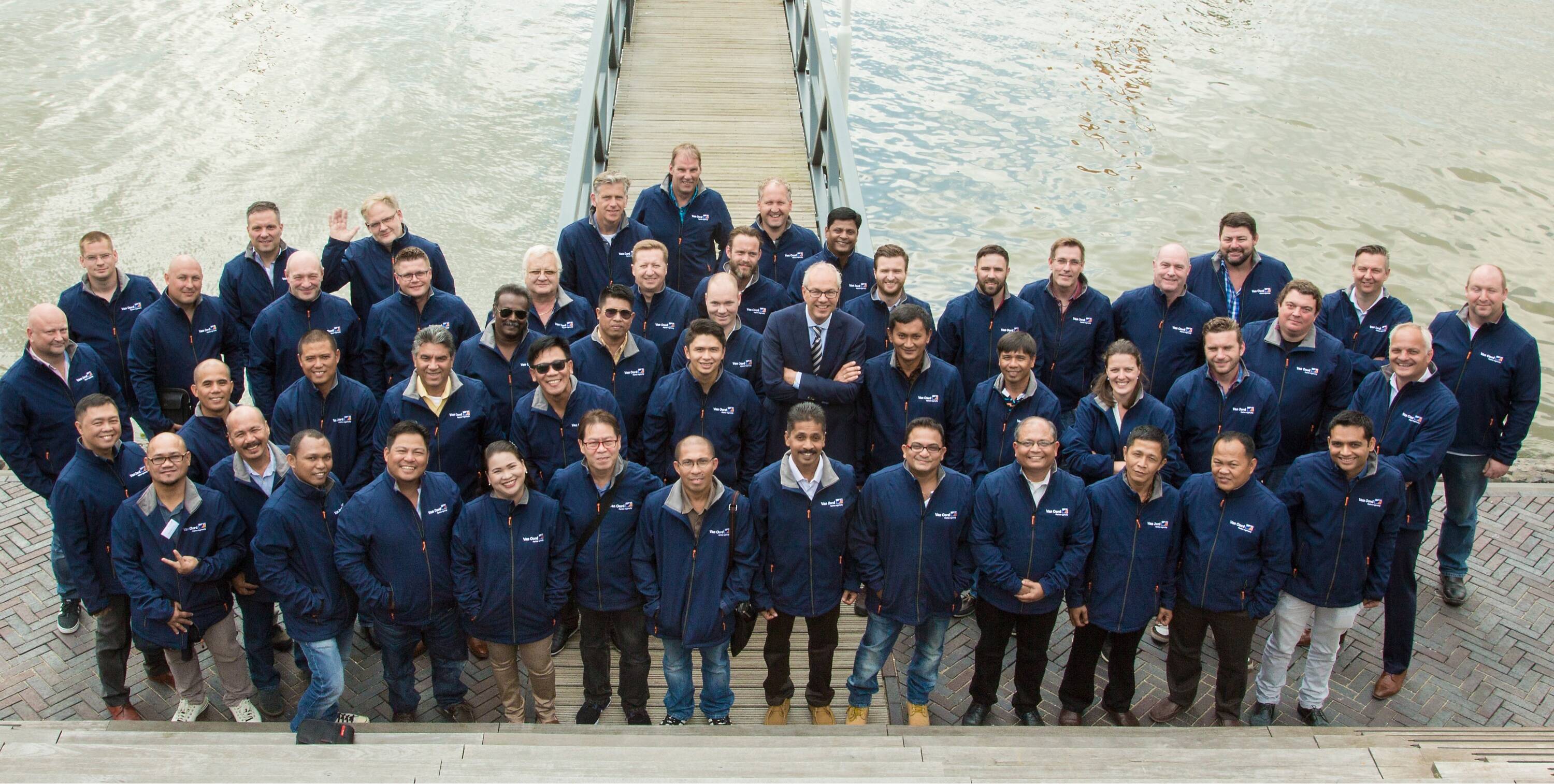
Van Oord has more than 5,000 employees. How do you get them to engage with the company’s sustainability targets?
In 2019, Van Oord launched its sustainability programme, S.E.A., which stands for Sustainable Earth Actions. They are the sustainable activities that Van Oord undertakes to generate new opportunities in our field and to help build a sustainable future. Today, next year, and far beyond.
Awareness is the first step towards changing behaviour. At our S.E.A. talks, we invite employees to think about sustainability issues. I encourage everyone to consider the impact of making small changes to their lifestyle and work setting.
All these small steps added together can have a major impact on environmental pollution. We also offer our employees ‘green’ benefits, such as a special deal on solar panels. They can purchase a complete solar energy package at a discount. These are benefits designed to encourage our employees to adopt sustainable behaviour.
Leaving scope for innovation gives our company access to new, sustainable solutions. Van Oord cooperates closely with industry partners and innovation platforms such as PortXL to pool knowledge and accelerate the development of new ideas.
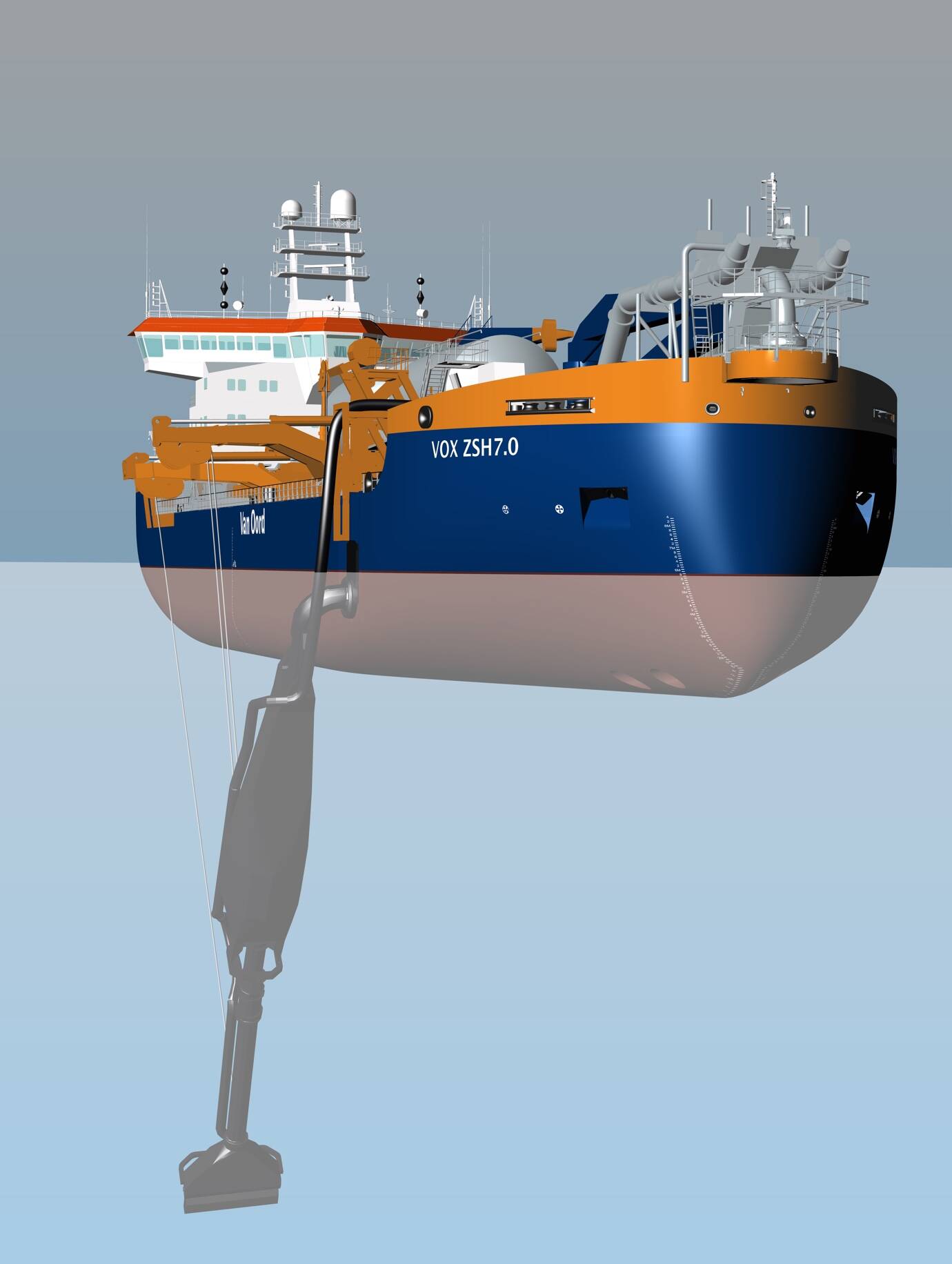
95% of Van Oord’s carbon footprint is linked to its fleet? How are you reducing that footprint?
Many of the technologies developed to improve fleet emissions are meant for average, long-distance shipping. They are often difficult to apply to Van Oord’s fleet, which operates in a niche market near the coast. So that’s why we have to come up with our own solutions. We are working on all kinds of systems to address our carbon footprint. But also look at other emissions like NOx. One thing we do is to improve our operational efficiency. Cruising at economic speed is a customary way of reducing overall fuel consumption.
Obviously, you can tackle fuel economy right from the start, with the vessel’s design. We spend a lot of time analysing the flow around ships and offshore structures. We use this information to minimise vessel resistance and maximise hopper capacity.
We are working with Shell to test biofuel in the fleet. Biofuels are solutions that can be implemented in the short and medium term. You can blend them with conventional fuels without having to make major engine modifications. Vessel carbon emissions are 40% lower with biofuel than with conventional fuel.
There is not one, overarching solution to the problem of vessel fuel emissions, but we are doing everything we can to make our fleet more sustainable. For example, we are having three new hopper dredgers built that can operate on LNG, and that will yield a substantial reduction in carbon emissions.
I want to emphasise that we are fully committed to the future emissions strategy of the International Maritime Organisation (IMO) to reduce the total greenhouse gas (GHG) emissions of at least 50% by 2050 compared with 2008 and simultaneously work towards a future where we ban them entirely. That is our goal for the years to come.
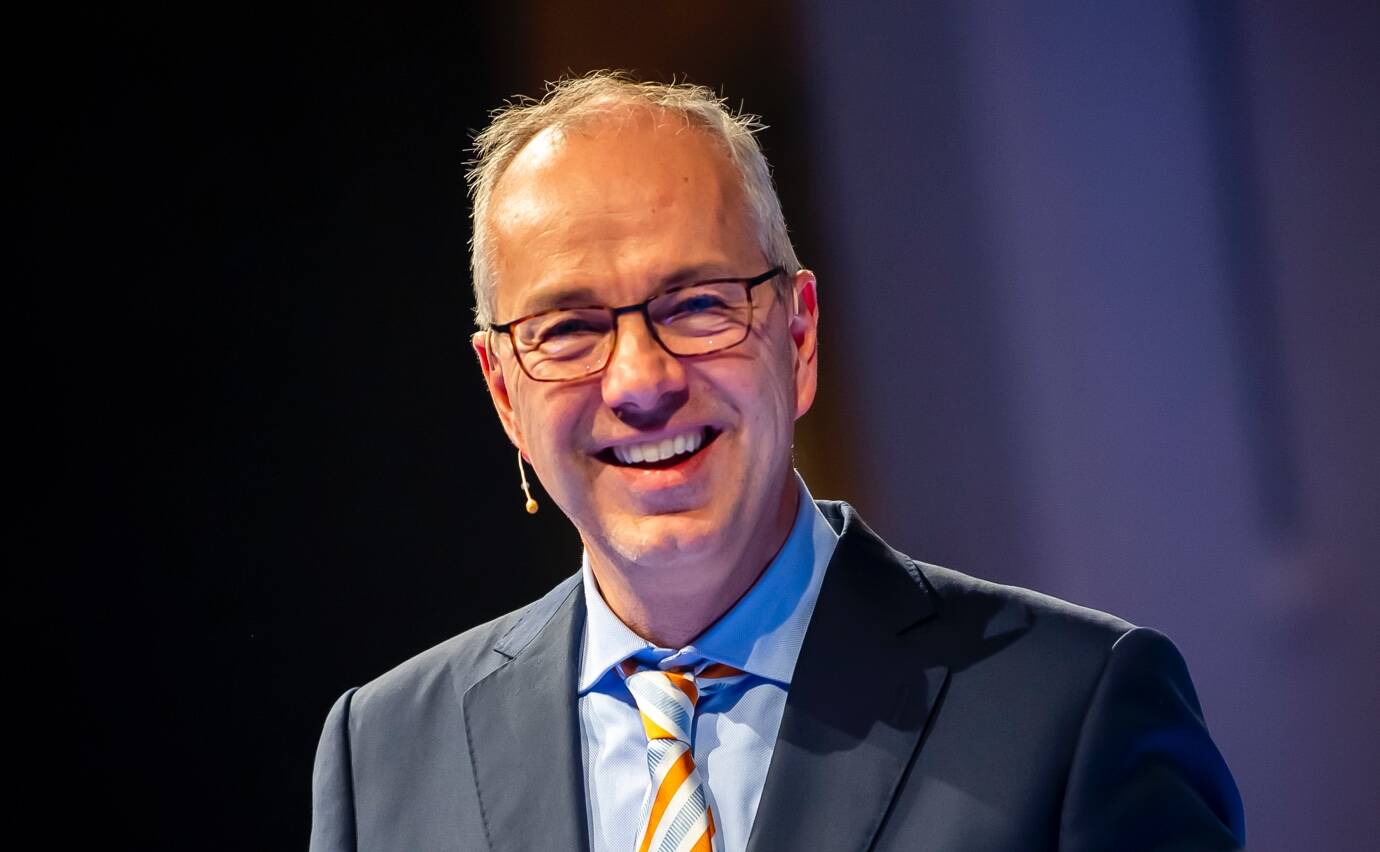
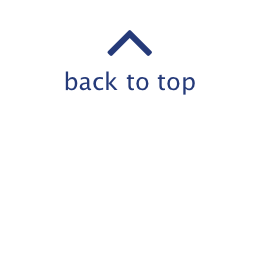
The Gemini project
Facts & figures
green energy to almost 800,000 households
almost 5 percent of all Dutch households
generates 600 megawatts
reduces carbon emissions by 1.25 million tonnes per year
5
95% of Van Oord’s carbon footprint is linked to its fleet? How are you reducing that footprint?
Van Oord has more than 5,000 employees. How do you get them to engage with the company’s sustainability targets?
Which sustainable project or accomplishment are you most proud of and why?
The white paper notes that oil and gas remain a relevant market for Van Oord. How does that fit in with the company’s sustainability ambitions?
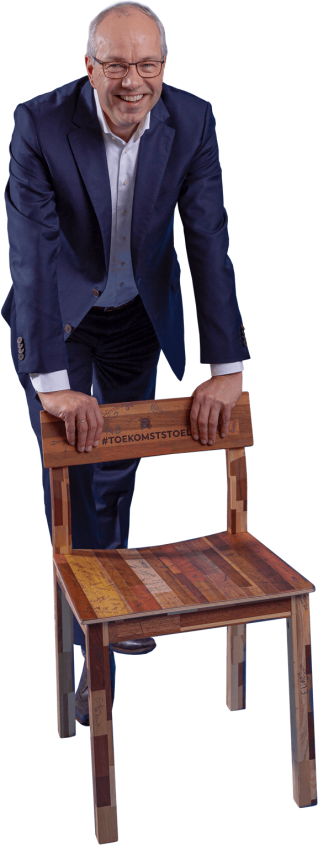
questions for
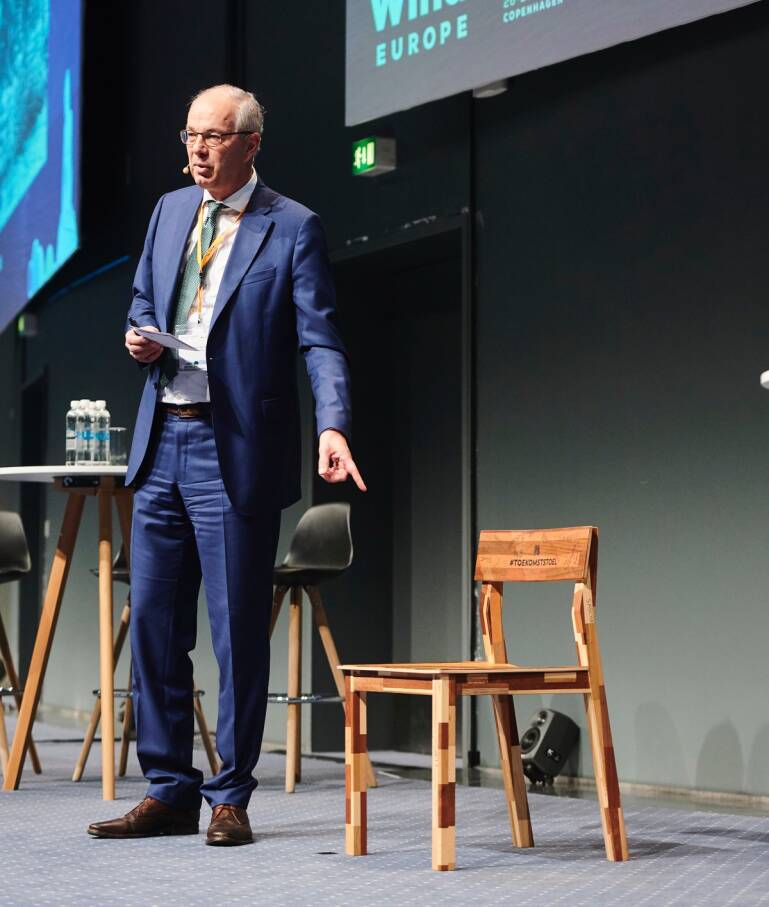
Many of the technologies developed to improve fleet emissions are meant for average, long-distance shipping. They are often difficult to apply to Van Oord’s fleet, which operates in a niche market near the coast. So that’s why we have to come up with our own solutions. We are working on all kinds of systems to address our carbon footprint. But also look at other emissions like NOx. One thing we do is to improve our operational efficiency. Cruising at economic speed is a customary way of reducing overall fuel consumption.
Obviously, you can tackle fuel economy right from the start, with the vessel’s design. We spend a lot of time analysing the flow around ships and offshore structures. We use this information to minimise vessel resistance and maximise hopper capacity.
We are working with Shell to test biofuel in the fleet. Biofuels are solutions that can be implemented in the short and medium term. You can blend them with conventional fuels without having to make major engine modifications. Vessel carbon emissions are 40% lower with biofuel than with conventional fuel.
In 2019, Van Oord launched its sustainability programme, S.E.A., which stands for Sustainable Earth Actions. They are the sustainable activities that Van Oord undertakes to generate new opportunities in our field and to help build a sustainable future. Today, next year, and far beyond.
Awareness is the first step towards changing behaviour. At our S.E.A. talks, we invite employees to think about sustainability issues. I encourage everyone to consider the impact of making small changes to their lifestyle and work setting.
Personally, I consider the Gemini offshore wind park a true milestone. It is the perfect example of how Van Oord has been a first-mover in the offshore wind market and the sustainable impact that Van Oord creates.
At the Gemini project Van Oord was both a co-investor and contractor for the largest Engineering Procurement and Construction contract in our history. At 150 wind turbines, Gemini is still the biggest offshore wind farm in the North Sea.
I am proud of many thing we achieve at Van Oord. Another topic that comes to my is the introduction of two LNG (Liqified Natural Gas) hoppers to our fleet. Because of this investment we will gain more experience how to use LNG as an alternative fuel in this category of dredging equipment.
The discussion we are having about shifting the energy mix to renewable sources is of course relevant for the Western world, but many countries cannot even afford to have this discussion. There, oil and especially gas are substitutes for coal and other more polluting fuels. The knowledge that Van Oord has acquired through its long involvement in offshore is critical for the transition to a sustainable energy supply. Gas, in particular, will play a key role in the transition to other energy sources in the next decade.
The world will not become sustainable overnight. I believe it will take a generation to shift to a renewable energy system. During this period, Van Oord intends to lead the way in creating a better world for future generations. We are prominent in the creation of a low carbon society with the expertise that we have acquired in developing and building offshore wind farms. Van Oord has been investing in people, equipment and knowledge for many years with a view to rolling out offshore wind farms on a massive scale.
What motivates you to contribute to a sustainable future?
Last year, as part of our 150th anniversary celebrations, we asked our employees’ children to come up with ideas for what we should do in the next 150 years. As a reminder, they gave me a chair decorated with all their names and ideas. One of the ideas is to create a new energy system based on renewable sources. These children are the future! They will have to live in the world that we leave behind for them. The chair is my daily reminder of what we need to do. How?
In our white paper, we pledge to contribute actively to accelerating the energy transition. We are going to accomplish this by facilitating among others the large scale roll-out of offshore wind energy. That means investing in vessels, investing in people and investing in the value chain. In a way, we are developing a new economy.
Interview
Pieter
There is not one, overarching solution to the problem of vessel fuel emissions, but we are doing everything we can to make our fleet more sustainable. For example, we are having three new hopper dredgers built that can operate on LNG, and that will yield a substantial reduction in carbon emissions.
I want to emphasise that we are fully committed to the future emissions strategy of the International Maritime Organisation (IMO) to reduce the total greenhouse gas (GHG) emissions of at least 50% by 2050 compared with 2008 and simultaneously work towards a future where we ban them entirely. That is our goal for the years to come.
All these small steps added together can have a major impact on environmental pollution. We also offer our employees ‘green’ benefits, such as a special deal on solar panels. They can purchase a complete solar energy package at a discount. These are benefits designed to encourage our employees to adopt sustainable behaviour.
Leaving scope for innovation gives our company access to new, sustainable solutions. Van Oord cooperates closely with industry partners and innovation platforms such as PortXL to pool knowledge and accelerate the development of new ideas.
Van Oord’s white paper makes a bold statement about accelerating the energy transition. Why does it want to help decarbonise the world’s energy supply? Our five questions for CEO Pieter van Oord delve into the company’s sustainable mindset.
van
Oord
